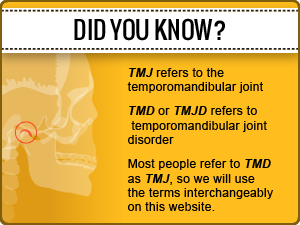 Do you wake up feeling still tired, even after a full night’s sleep? Is your loved one complaining that you snore or gasp for air? Do you have morning headaches or trouble staying awake throughout the day? You could be suffering from snoring and sleep apnea, Chicago sleep specialists warn that this disorder is extremely common in the adult population.
Do you wake up feeling still tired, even after a full night’s sleep? Is your loved one complaining that you snore or gasp for air? Do you have morning headaches or trouble staying awake throughout the day? You could be suffering from snoring and sleep apnea, Chicago sleep specialists warn that this disorder is extremely common in the adult population.
About Snoring and Sleep Apnea
Snoring usually appears when the airflow through the passage at the back of your mouth and nose is obstructed. This is the collapsible part of the airway, the area where the upper throat and the tongue meet the uvula and the soft palate. Snoring is the noise these structures make during breathing, when striking each other and vibrating.
According to the American Academy of Otolaryngology, 45% of normal adults are occasional snorers, while 25% are frequent snorers. Men are more predisposed to snoring than women, and the snoring gets worse with weight gain and age. Snoring is usually a sign of obstructive sleep apnea.
This disorder can be defined as episodes of breathing pauses that last from 10 seconds to a couple of minutes. It usually appears when the upper airway narrows or collapses. Its immediate consequence is a decrease of the oxygen levels in the blood, which forces the heart to work harder.
By disrupting their natural sleep cycle, this disorder makes people experience fatigue and concentration issues no matter how much time they spend in bed. It is understandable, considering that apnea sufferers may experience between 30 and 300 episodes a night.
With time, apnea related sleep disruptions brings about a series of unpleasant symptoms, like:
- Chronic fatigue
- Concentration difficulties
- Short term memory gaps
- Mood shifts and irritability
- Weight gain
- Uncontrolled sleep episodes throughout the day
- Headaches, etc.
In order to maintain proper airflow to their lungs, apnea sufferers sleep lightly, keeping their throat muscles tense. Without proper rest, they get sleepy during the day and unable to perform at work, safely operate equipment, or drive. Left untreated, sleep apnea predisposes the sufferer to heart diseases, diabetes, and other serious medical problems.
Diagnosing and Treating Snoring and Sleep Apnea in Chicago
Given the main cause, airway obstruction, the traditional treatment for sleep apnea and snoring Chicago sleep specialists recommend involves using CPAP (Continuous Positive Airway Pressure device). The problem with this treatment is that patients find it difficult to tolerate, and it does not always target the actual root of the problem.
In many cases, airway obstruction is just a consequence of an underlying temporomandibular joint (TMJ) problem. These problems usually appear when one’s bite is misaligned, repositioning one’s tongue in such a way that it blocks the airways. In fact, dental problems are behind most sleep apnea and snoring cases. What does this mean?
While CPAP and surgery remain viable treatment options, they are rather intrusive and expensive. Dental solutions on the other hand are much more affordable, convenient, and highly effective. They range from tongue retraining devices (splints that reposition the tongue to clear the airways) to mandibular advancement devices (similar to sports mouth guards, they clear the airways by exerting pressure forward and downwards on the lower jaw), and various other oral appliances meant to improve sleep and reduce snoring.
Do you recognize any of the above symptoms? Are you a heavy snorer? Are you worried that you could suffer from apnea or some other sleep disorder? Don’t let your sleep problems diminish your quality of life! Make an appointment now, and let Dr. Ira Shapira help you enjoy quality sleep again! After years of researching, diagnosing and treating snoring and sleep apnea in Chicago, he is the specialist who can help you rest and regain control of your life!


Snoring is often not just a problem itself but rather a symptom of a more sinister issue: sleep apnea. So it is good to consult with your dentist for the treatment.
Thanks for the amazing post!
Snoring is part of continum of sleep disordered breathing and is often indicative of more serious issues.